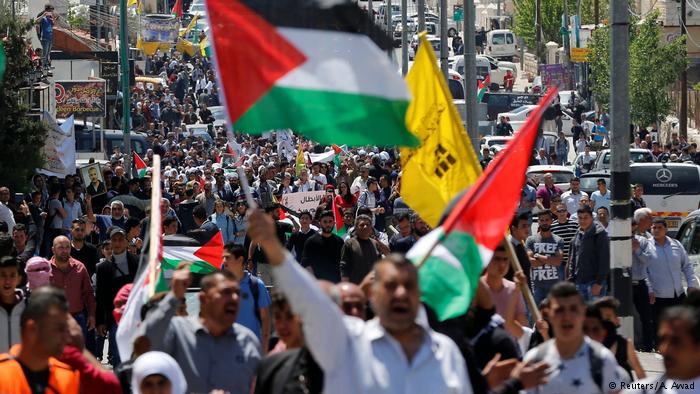
Protesters blocked roads in the West Bank as a hunger strike in Israeli prisons entered its 36th day. Government offices closed, public transport halted, and thoroughfares in Palestinian cities sat empty.
The Palestinian prisoners’ affairs committee has also called for a “day of rage” when Donald Trump visits Bethlehem on Tuesday for “the voice of the prisoners to be heard by the president.”
On Monday, fresh from inking an arms deal worth $110 billion with Saudi Arabia, Trump landed in Israel for a two-day visit. The US’s chief executive, who, along with Tony Schwartz, has an author credit for 1987’s seminal “Trump: The Art of the Deal,” considers himself a skilled negotiator and is hoping that he might enjoy more success inserting himself into Middle Eastern politics than seven decades of his predecessors have.
Short visit, broad agenda
Ahead of Trump’s arrival, Israeli ministers approved measures aimed at improving economic conditions for Palestinians and removing some restrictions on their mobility. For one example, they gave the nod to streamlining transit procedures at Shaar Ephraim, a busy crossing point in the northern part of the occupied West Bank for Palestinians with permits to work in Israel.
The daily newspaper, “Haaretz” reported that authorities sought to allow construction of “thousands of Palestinian homes” in an area where officials had for years denied applications from non-Israeli residents to build on their own land. “Haaretz” reported that at Sunday night’s meeting Education Minister Naftali Bennett and deputy foreign minister Ayelet Shaked, of the religious-nationalist Jewish Home party, “objected vehemently” to the building plans.
Scandal-plagued at home, fatigued on the road, Trump will meet with Palestinian President Mahmoud Abbas and visit sites holy to both Muslims and Jews.



